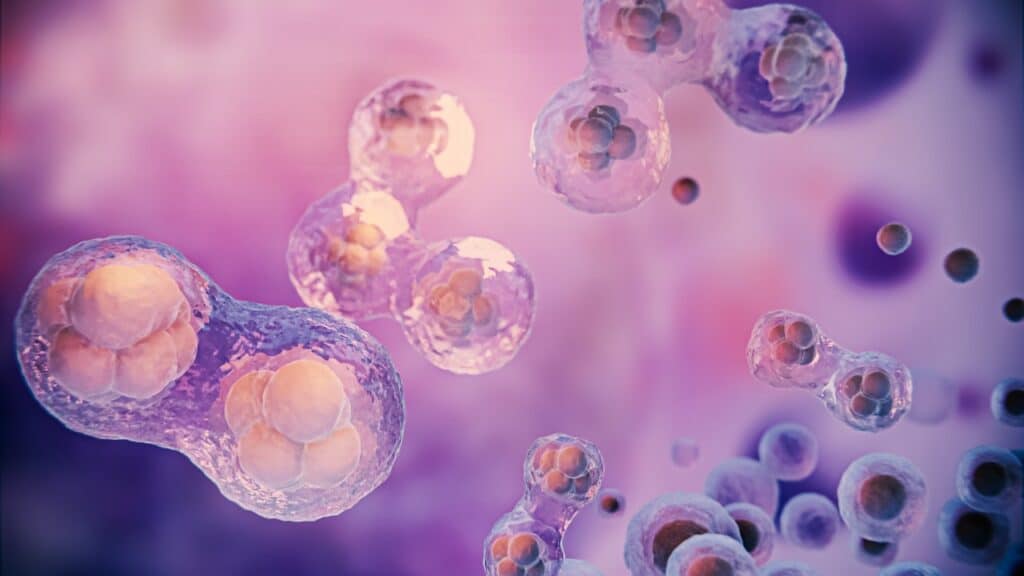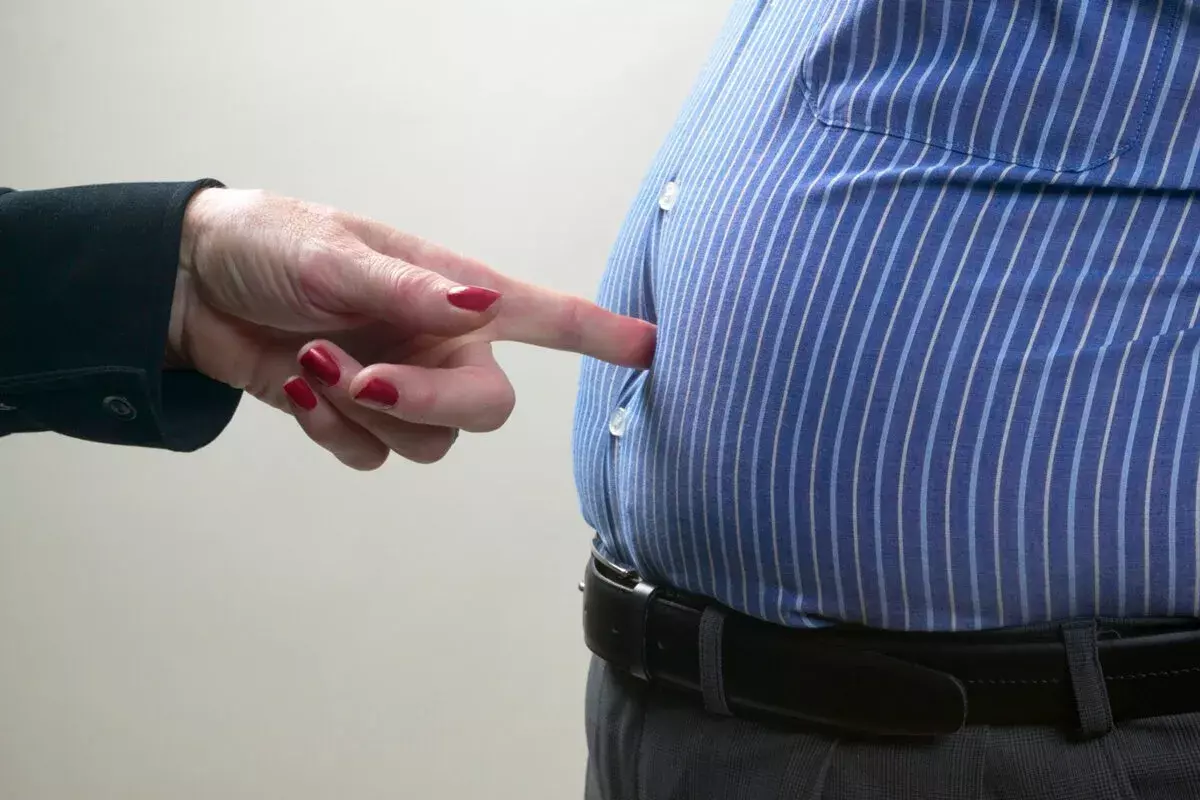Fasting for Cell Repair works primarily by activating autophagy—the cell’s recycling program that clears damaged proteins and organelles. Most people see meaningful autophagy signaling after ~24 hours of fasting, with deeper effects between 24–48 hours. Safety matters: extended fasting isn’t appropriate for everyone, and the benefits depend on your health status, preparation, and how you refeed.
Key Takeaways
- Fasting induces autophagy, a process that aids in cellular repair.
- Autophagy can start between 24 to 48 hours of fasting.
- Understanding the optimal fasting duration is key to maximizing its benefits.
- Fasting has various health benefits beyond cellular repair.
- The autophagy fasting timeline varies among individuals.
The Science of Cellular Repair During Fasting

Fasting starts autophagy, a natural way for cells to renew and repair themselves. Autophagy comes from “auto” meaning self and “phagy” meaning eating. It’s how cells clean out damaged parts.
When we fast, our cells go through a cleaning cycle. They break down and reuse damaged parts. This keeps cells healthy and promotes overall well-being.
Understanding Autophagy: The Cell’s Cleaning Mechanism
Autophagy is like a recycling system for cells. It helps cells get rid of damaged parts and reuse them. This process is key for cell renewal and brings many health benefits, like a stronger immune system and less inflammation.
The autophagic process involves several key steps:
- Identification of damaged cellular components
- Formation of autophagosomes to engulf these components
- Degradation of engulfed components by lysosomes
- Recycling of resulting macromolecules
How Fasting Triggers Cellular Repair
Fasting starts cellular repair by turning on autophagy. When we fast, our cells face a mild stress. This stress makes them start cleaning themselves through autophagy.
The link between fasting and autophagy works in several ways:
| Fasting Duration | Autophagic Response | Cellular Outcome |
| 12-16 hours | Initial autophagy induction | Enhanced cellular cleaning |
| 24 hours | Significant autophagy activation | Cellular renewal and repair |
| 48 hours | Peak autophagic activity | Maximum cellular regeneration |
Knowing how fasting boosts autophagy helps us use this natural process for better health. It’s a way to improve our overall well-being.
Minimum Fasting Duration for Cellular Benefits
Knowing the minimum fasting time is key to getting the most benefits. Fasting triggers changes that help repair and renew cells.
12-16 Hour Window: Initial Metabolic Changes
Fasting for 12 to 16 hours starts the body’s metabolic shift. It uses up glycogen and starts burning fat. This helps improve insulin sensitivity and starts cleaning cells through autophagy, but the full effect comes later.
Key changes during the 12-16 hour fasting window include:
- Depletion of glycogen stores
- Initial shift towards fat metabolism
- Improved insulin sensitivity
24 Hours: When Autophagy Begins to Accelerate
Fasting for 24 hours is a big milestone. It’s when autophagy, the body’s cleaning process, really kicks in. Autophagy removes damaged cells and proteins, essential for cell repair and renewal. Studies show autophagy starts around 24 hours and grows after that.
“Fasting induces autophagy, a natural process in which cells recycle and remove damaged components, leading to cellular renewal and rejuvenation.”
Beyond 24 Hours: Enhanced Cellular Repair
Going beyond 24 hours of fasting boosts cell repair even more. The body’s autophagy gets stronger, leading to deeper cell cleaning and renewal. Some say a 48-hour fast is the best for autophagy and cell benefits.
| Fasting Duration | Metabolic Changes | Cellular Benefits |
| 12-16 Hours | Glycogen depletion, initial fat metabolism | Improved insulin sensitivity |
| 24 Hours | Autophagy initiation | Cellular cleaning and repair |
| Beyond 24 Hours | Enhanced autophagy | Extensive cellular renewal |
In summary, the first 12-16 hours of fasting start metabolic changes. But the real cell benefits, like autophagy, come around after 24 hours. Knowing this helps tailor fasting plans for better cell health.
Benefits of a 48 Hour Fast for Maximum Cell Repair
Fasting for 48 hours can start a natural process called autophagy. This process helps clean out damaged cells and makes new ones. It’s key for staying healthy and fighting off diseases.
When you fast for 48 hours, your body changes in ways that help fix cells. One major benefit is autophagy, which strengthens after 24 hours and continues.
Why 48 Hours Is a Sweet Spot for Autophagy ?
A 48-hour fast is perfect for autophagy because it gives the body enough time. It starts using fat for energy, which boosts autophagy. This also leads to ketosis, where fat is burned for fuel. Ketones protect cells.
Research Supporting the 48-Hour Timeline
Research shows that fasting for 48 hours significantly improves cell health. A study in MIT News found that fasting boosts stem cells. These cells are essential for tissue repair and growth.
| Fasting Duration | Autophagy Level | Cellular Benefits |
| 12-24 hours | Initial autophagy | Initial metabolic changes, glycogen depletion |
| 24-48 hours | Deep autophagy | Enhanced cellular repair, increased fat burning |
| Beyond 48 hours | Peak autophagy | Maximum cellular renewal, possible extra benefits |
The table shows how autophagy and cell repair change over time during fasting. A 48-hour fast is when autophagy and repair are at their best.
Complete Timeline of Fasting and Cellular Changes
Fasting is a journey that affects our cells in many ways. It includes autophagy, which helps our cells repair and renew. Knowing the different stages of fasting can help us get the most out of it.
Hours 1-12: Digestive Rest and Glycogen Depletion
In the first 12 hours, our body starts to use stored glycogen for energy. This lets our digestive system rest. As glycogen runs out, our body begins to burn fat.
Hours 12-24: Fat Burning and Initial Autophagy

After 12 hours, our body burns more fat for energy. This gets even stronger up to 24 hours. It’s during this time that autophagy starts, helping our cells clean and recycle.
- Enhanced fat burning for energy
- Initial autophagic processes
- Increased cellular cleaning
Hours 24-48: Deep Autophagy and Cellular Regeneration
Within 24 to 48 hours, autophagy deepens. Cells clean out damaged parts more thoroughly. This is when our cells really start to regenerate and repair.
- Deepened autophagy
- Enhanced cellular regeneration
- Increased removal of damaged cellular components
Beyond 48 Hours: Diminishing Returns vs. Additional Benefits
After 48 hours, fasting continues to provide benefits, but they come more slowly. Longer fasting can clean cells more and offer more health perks. But it also raises the risk of problems if not done right.
Going beyond 48 hours needs careful planning and expert advice. It’s essential to stay safe and get the most out of it.
Health Benefits Beyond Cell Repair
Fasting does more than repair cells. It brings many health benefits that can change how we feel. It’s not just about fixing cells. Fasting also boosts metabolism, reduces inflammation, and improves brain function.
Metabolic Advantages and Insulin Sensitivity
Fasting makes our bodies better at handling sugar. This is key to keeping blood sugar levels healthy. It lets the body focus on glucose control, improving metabolic health and lowering the risk of diabetes.
It also helps us lose fat, which benefits our metabolism. The benefits of fasting on insulin sensitivity make it great for metabolic health.
Inflammation Reduction and Immune System Reset
Fasting fights inflammation, which is linked to many diseases. This is good for our immune system and overall health. It helps keep our bodies healthy and strong.
It also resets our immune system. During fasting, our body gets rid of old or damaged cells. This makes our immune system work better, helping us fight off infections and diseases.
Mental Clarity and Cognitive Benefits
Fasting can make our minds clearer and more focused. Many people feel more productive when fasting. The exact reasons are not known, but it might be because fasting boosts a brain protein called BDNF.
It also helps clean out damaged brain cells through autophagy. This can lead to better brain health over time. Fasting is interesting for those who want to support their brain.
How to Properly Prepare for a 48 Hour Fast
A successful 48-hour fast starts with smart preparation. The right diet, hydration, and mindset reduce discomfort, support autophagy, and improve the benefits you’ll feel during and after fasting. Here’s a structured plan to get ready.
Dietary Adjustments in the Days Before Fasting
Set up your metabolism and digestion for a smooth transition.
| Taper calories 2–3 days in advance | Gradually reduce portion sizes and ultra-processed foods to ease into fasting. |
| Hydrate consistently | Aim for pale-yellow urine; add light electrolytes if you’re prone to dehydration. |
| Choose nutrient-dense, simple meals | Well-cooked vegetables, whole fruits (moderation), lean proteins (fish, eggs, plain yogurt), and healthy fats (olive oil). |
| Increase fiber gently | Add fiber gradually over 1–2 days to avoid bloating; keep portions balanced. |
| Avoid or limit | High-sugar foods and processed snacks Very salty or overly fatty meals (can increase thirst and GI discomfort) Alcohol and excessive caffeine (may worsen dehydration) |
Mental and Physical Preparation Strategies
Mental prep is as vital as physical prep for a 48 hour fast. Set clear goals for your fast to stay motivated. Plan your fasting schedule to fit your life and commitments to reduce stress.
Get enough rest before fasting to help your body handle it. Some people do light exercise before fasting to feel better and more energetic.
Remember, listen to your body as you prepare for your 48-hour fast. If you feel bad or have concerns, talk to a healthcare expert for advice.
Step by Step Guide to Completing a 48 Hour Water Fast
Starting a 48-hour water fast is tough but can be very rewarding. This guide will help you through the key steps for a safe and effective fast.
What to Consume During the Fast
When fasting for 48 hours, you can only drink water. Avoid any drinks with calories, like juice or tea. Drinking 8-10 glasses of water a day is a good rule, but it might vary based on how active you are and where you live.
Managing Hunger and Discomfort
Handling hunger is a big part of fasting for 48 hours. Hunger can feel strong at first, but it usually gets better as you get used to it. To fight hunger, drink lots of water and do light activities to take your mind off it. Keeping a journal or practicing mindfulness can also help with the mental side of fasting.
Monitoring Your Body’s Signals
It’s important to listen to your body during a 48-hour fast. Watch for signs of dehydration, dizziness, or feeling very tired. If you have severe symptoms like dizziness, chest pain, or dehydration, get medical help right away. Paying attention to your body helps you know if you need to change your fasting plan or stop early.
By following these tips and being aware of how your body reacts, you can safely and successfully complete a 48-hour water fast. The aim is to help your body renew itself and improve your overall health.
What to Expect Hour by Hour During Fasting
Knowing what happens hour by hour during a 48-hour fast can really help. It prepares you and gets you ready mentally. People fasting go through different changes in their body and mind. Each person faces unique challenges and benefits at different times.
The First 24 Hours: Common Experiences
In the first 24 hours, your body changes a lot. Glycogen depletion happens in the first 12 hours. This can make you feel less hungry and possibly lighter.
But, you might feel fatigue, headaches, or dizziness because your body is switching to new energy sources. As you get used to it, you might start to feel more focused and proud of yourself.
The Second 24 Hours: Adaptation and Breakthrough
After 24 hours, your body starts using ketones as its main energy. Many people feel less hungry and more energetic. This is often called the breakthrough phase.
In this phase, you might feel mental and physical rejuvenation. It’s also common to experience autophagy. This is when your body recycles and removes damaged cells and proteins. It helps your body renew itself.
Who Should Avoid Extended Fasting
Extended fasting is good for many, but not everyone. It’s not right for everyone, and can be risky for some. This is true, more so for 48-hour fasts.
Medical Conditions Incompatible with 48 Hour Fasts
Some health issues make fasting for 48 hours risky. These include:
- Diabetes: People with diabetes, on insulin or certain meds, should be careful. Fasting can cause blood sugar to drop too low.
- Pregnancy and Breastfeeding: Women expecting a baby or breastfeeding should not fast for long. It can lead to nutrient deficiencies and other problems.
- Eating Disorders: Those with eating disorders should not fast. It can make their condition worse.
- Malnutrition or Underweight: People who are not getting enough nutrients or are underweight should not fast for long. It can make their nutritional problems worse.
- Chronic Diseases: Some chronic diseases, like kidney, heart, or liver disease, may mean you should not fast. Or, you should talk to your doctor first.
When to Consult a Healthcare Provider
Even if you don’t have a condition that makes fasting bad, talk to a doctor before a 48-hour fast. This is true if you:
- Are over 65 years old
- Have a history of health issues
- Are taking medications
- Have concerns about your health or fasting regimen
A doctor can give you advice based on your health. They can help you decide if a 48-hour fast is safe for you.
Breaking Your Fast Safely After 48 Hours
After a 48-hour fast, it’s key to break your fast safely. This ensures you get the most benefits and avoid risks. The way you start eating again is very important. It helps your body adjust to food without discomfort.
Ideal Foods for Refeeding
Start with foods that are easy to digest when breaking a 48-hour fast. You want to slowly add nutrients back into your body. This lets your digestive system recover smoothly.
- Bone broth: Rich in nutrients and easy on the stomach.
- Vegetable broth: Gentle on the digestive system and hydrating.
- Plain yogurt: Provides probiotics to support gut health.
- Scrambled eggs: Easy to digest and a good source of protein.
- Steamed vegetables: Nutrient-rich and gentle on the stomach.
Avoid heavy, rich, or fatty foods at first. They can upset your stomach. A fasting expert says, “The way you break your fast is just as important as the fast itself. A gentle refeed can make all the difference in maintaining the benefits achieved during fasting.”
Refeeding Schedule to Maximize Benefits
The refeeding schedule is key to getting the most from a 48-hour fast. Start slow to avoid shocking your system. Here’s a suggested refeeding plan:
| Time | Food | Portion Size |
| 0 hours | Bone broth or vegetable broth | 1 cup |
| 1-2 hours | Plain yogurt or scrambled eggs | Small serving |
| 4-6 hours | Steamed vegetables or lean protein | Moderate serving |
| 8-12 hours | Normal meal | Regular portion |
Stick to this schedule for a smooth transition back to eating. It helps avoid discomfort and keeps the benefits of your fast.
Alternative Fasting Protocols for Cell Repair
Fasting comes in many forms, each with its own benefits for cell repair. Some people might find a 48-hour fast hard. But, other methods offer similar benefits with different times and how often you do them.
Intermittent Fasting Methods
Intermittent fasting (IF) is popular for its flexibility and results. It includes methods like the 16/8 and 20/4. These involve eating only during certain times, making your fasting longer.
The 16/8 method means fasting for 16 hours and eating in an 8-hour window. You can skip breakfast or dinner, depending on what works for you.
- 16/8 Method: Great for beginners, it’s less strict and fits into daily life easily.
- 20/4 Method: Known as the “warrior diet,” it lets you eat in a 4-hour window. It’s tougher but might be more rewarding for some.
24 Hour Fasting
Fasting for 24 hours can boost autophagy and cell renewal. It means not eating for a whole day, from dinner to dinner or breakfast to breakfast.
- Benefits: Better autophagy, improved insulin sensitivity, and clearer thinking.
- Limitations: It can be tough for some, like those with health issues or nutritional needs.
Extended Fasting (3-7 Days)
Extended fasting goes beyond 48 hours, lasting from 3 to 7 days or more with medical watch. It can lead to deeper autophagy and more cell repair.
- Risks: Includes dehydration, nutrient gaps, and risks for the elderly or those with chronic conditions.
- Rewards: Deeper autophagy, significant cell renewal, and better health and longevity.
In conclusion, a 48-hour fast is just one option for cell repair. Exploring other methods can help find a fasting plan that fits your lifestyle and health goals.
How Often Should Should Should Should Should Often You Do a 48 Hour Fast?
To get the most out of 48-hour fasting, figuring out how often to do it is key. The right amount depends on your health and what you want to achieve. It’s all about finding a balance that works for you.
Frequency Recommendations Based on Goals
The number of 48-hour fasts you should do varies by goal. For basic health, once a month might be enough. But if you want deeper benefits like better autophagy or weight loss, you might need to fast more often.
For specific health goals, like better insulin control or cell cleaning, fasting every two to three weeks could help. Always listen to your body and adjust your fasting plan as needed.
Signs Your Body Needs Recovery Between Fasts
Knowing when your body needs a break between fasts is important. Look out for signs like constant tiredness, dizziness, or feeling less capable during the day. If you notice these, it might be time to give your body more rest.
Other signs you might need more time to recover include hair loss, muscle loss, or never-ending hunger after eating. Pay attention to how your body reacts to fasting. Adjusting your fasting schedule based on your body’s signals is essential for a healthy fasting routine.
In the end, the frequency of 48-hour fasts should match your personal needs and goals. Getting advice from a healthcare professional can help you safely add 48-hour fasts to your routine.
Combining Exercise with Fasting for Enhanced Cell Repair
To get the most from fasting, it’s key to add the right exercise at the right time. Doing both can boost cell repair and health.
Optimal Exercise Timing During a Fast
When you exercise during fasting matters a lot. Studies show that working out later in the fast might be better for fixing cells.
- Early Fasting Stage: Light to moderate exercise, such as yoga or brisk walking, can be done early in fasting.
- Late Fasting Stage: More intense workouts are best towards the fast’s end. This is when the body uses fat for energy best.
Types of Exercise That Complement Fasting
Not all exercises are good for fasting. Some are better than others for fixing cells.
- Aerobic Exercise: Cycling, swimming, or jogging can help your heart health during fasting.
- Resistance Training: Lifting weights or doing bodyweight exercises keeps muscle mass while fasting.
- High-Intensity Interval Training (HIIT): HIIT, with its short, intense workouts, boosts insulin sensitivity and cell health.
It’s important to listen to your body and change your workout plan as needed. Drinking plenty of water and eating well after fasting helps with recovery. This way, you get the most from exercise and fasting for cell health.
Common Mistakes When Fasting for Cell Repair
Fasting for cell repair can be very beneficial if done right. But, making mistakes can harm more than help. It’s important to know what to avoid.
Overextending Your Fast Without Preparation
One big mistake is fasting too long without getting ready. This can cause nutrient shortages and harm your muscles. It’s key to prepare well before fasting.
To avoid this, start with short fasts and slowly increase the time. Make sure you’re well-fed before fasting. And always listen to your body to adjust your fasting plan if needed.
Breaking Your Fast Improperly
Another mistake is not breaking your fast correctly. Eating too much sugar or calories right after fasting can upset your stomach. It also reduces the fasting benefits.
When you break your fast, eat foods that are easy to digest. Start with broths, fruits, and veggies. Then, move to lean proteins and whole grains. Avoid foods high in sugar and fat.
By avoiding these mistakes, you can make fasting work better for you. It helps repair cells and improves your health.
Scientific Research on Fasting and Longevity
Scientists have been studying how fasting affects longevity. They look at how fasting changes our body’s processes. They want to know if it can make us healthier and live longer.
Human Studies on Fasting and Cellular Health
Studies on humans have shown fasting’s benefits for cells. For example, fasting can help cells clean out damaged parts. A study found that fasting for 48 to 72 hours boosts this cleaning process in people.
More research shows fasting might help old stem cells work better. This could be key to keeping us young.
Human studies also look at fasting’s effects on health markers. These include how well our bodies handle sugar, inflammation, and heart health. So far, fasting seems to help in these areas, but more research is needed.
Animal Research and Its Implications for Humans
Animal studies have helped us understand fasting’s effects on longevity. For example, mice on alternate-day fasts live longer and stay healthier. They also get fewer age-related diseases.
While animal studies can’t directly tell us about humans, they give us clues. Some metabolic pathways are similar in animals and humans. This means some benefits seen in animals might also apply to us.
In summary, both human and animal studies have taught us a lot about fasting and longevity. More research will likely reveal even more about fasting’s benefits for our health and lifespan.
Conclusion: Personalizing Your Fasting Protocol for Optimal Cell Repair
The best fasting plan for cell repair changes from person to person. It depends on health, goals, and lifestyle. A 48 hour fast can really help with cell repair, starting deep autophagy and regeneration.
When you’re setting up your fasting plan, think about what you need and your health. Talking to a healthcare expert can guide you to the right plan for you.
Learning about fasting and how it helps cells can help you choose the best fasting plan. This way, you can get the most health benefits from fasting.
For more information about our academic and training initiatives, visit Liv Hospital.
FAQ
What is autophagy and how does it relate to fasting?
Autophagy is how our body cleans and renews cells. It breaks down and recycles damaged cells and proteins. Fasting starts this process, helping our cells repair and grow.
How long should I fast for cellular benefits?
Fasting for 12-16 hours can help your cells. But, fasting for 24-48 hours is even better for deep cleaning and repair.
What are the benefits of a 48-hour fast?
A 48-hour fast boosts autophagy and cell regeneration. It also improves insulin sensitivity, reduces inflammation, and sharpens your mind.
How often should I do a 48-hour fast?
The right frequency for 48-hour fasts varies. Starting with once a month is good for health. Always listen to your body and adjust as needed.
Can I exercise while fasting?
Yes, you can exercise while fasting. Choose low-intensity activities like yoga or walking during fasting. High-intensity workouts are better after fasting.
What should I consume during a 48-hour water fast?
Stick to water, black coffee, or tea during a 48-hour fast. Avoid any calories or sweeteners to keep the fast.
How do I break a 48-hour fast safely?
Start with small amounts of nutrient-rich foods like bone broth or fruits when breaking your fast. Gradually add more food to avoid discomfort.
Who should avoid extended fasting?
People with diabetes, low blood pressure, or eating disorders should not fast long. Pregnant or breastfeeding women, children, and teens should also avoid fasting.
What are the risks of overextending a fast?
Long fasting can cause malnutrition, dehydration, and imbalances in electrolytes. It may also lead to fatigue, dizziness, and other issues, worse for those with health problems.
Can fasting improve mental clarity and cognitive function?
Yes, fasting can make your mind clearer and improve thinking. It boosts a protein called BDNF and helps remove damaged brain cells through autophagy.
How does fasting affect metabolism?
Fasting can make your body better at using insulin, reduce inflammation, and improve metabolism. It helps burn fat for energy, leading to weight loss and better health.
Does fasting improve mental clarity and metabolism?
Many report clearer focus; mechanisms include ketone utilization and improved insulin sensitivity. Shorter fasts can reduce post-meal glucose swings and support metabolic health over time.









